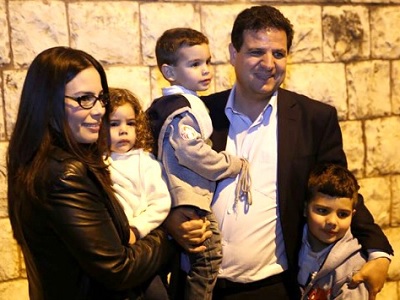
According to an Arab friend who lives in the Middle East, the most exciting Arab leader is an Israeli. His name is Ayman Oudeh. He is a 40-year-old Muslim attorney from Haifa with a wife and three kids. The newly-formed political party he heads — the Joint List — is currently polling third, after the Zionist Union and Likud.
But in a sense, Oudeh has already won the election.
Elected head of the socialist Arab-Jewish party Hadash a few months ago, Oudeh brought together four different parties representing secular Palestinian nationalists, Jewish socialists, Baathists and Islamists to form a single party with a platform that advocates for civil rights and democracy. The unification of these disparate parties with platforms that are often seriously at odds came as the result of legislation passed last year that raises the electoral threshold from 2% to 3.25%, or at least four seats. Ironically, it was pushed through by Avigdor Liberman and his Yisrael Beiteinu party as a means of pushing out the small Arab parties. Instead, they formed a united front and are now polling as the third-largest party in the Knesset, while Liberman’s party is polling at five seats — perilously close to missing the threshold and becoming a victim of his own legislation.
In a televised debate of all the party leaders (except Herzog and Netanyahu), Oudeh caught the media’s attention with his calm, self-possessed response to Liberman’s populist provocation, which included advising the Haifa-born attorney that he should be speaking in Ramallah or Gaza. “You’re not wanted here,” said Liberman. “I am very wanted in my homeland,” responded the Haifa-born attorney to the immigrant from Moldova. Then Oudeh went on to re-emphasize his party’s universalist, democratic message.





